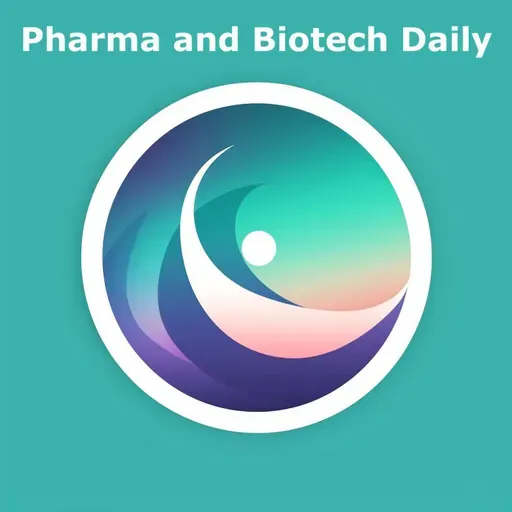
About
Good morning from Pharma Daily: the podcast that brings you the most important developments in the pharmaceutical and biotech world. Today, we're diving into some of the most significant shifts occurring in these industries, touching on strategic restructuring, regulatory milestones, and groundbreaking scientific advancements that are shaping the future of drug development and patient care.Let's begin with a major corporate shakeup at Novo Nordisk. The company has announced a significant leadership transition as former CEO Lars Rebien Sorensen is set to become the new chairman of the board. This change follows the resignation of seven board members and indicates a strategic realignment within the company. The Novo Foundation's involvement suggests a deeper strategic shift, potentially aligning with new organizational objectives and innovations. Such moves are pivotal as they could influence Novo Nordisk’s market position and future product development.Turning to scientific breakthroughs, Merck’s collaboration with Kelun-Biotech has yielded promising results with their Trop2 antibody-drug conjugate, sacituzumab-tmt. This ADC has shown success in two Phase 3 trials targeting lung and breast cancers, underscoring the therapeutic potential of ADCs in oncology. By selectively targeting cancer cells while minimizing damage to healthy tissues, ADCs could significantly improve patient outcomes and represent a powerful modality in cancer treatment.In regulatory affairs, Kenvue is challenging the FDA over proposed safety warnings for Tylenol linked to autism during pregnancy. This dispute highlights the ongoing debates surrounding drug safety and regulatory oversight. The outcome could have significant implications for labeling practices and consumer trust in over-the-counter medications. Meanwhile, Summit Therapeutics plans to file for FDA approval of ivonescimab, highlighting ongoing innovation in drug development pipelines. Similarly, Novo Nordisk's semaglutide pill Rybelsus has received FDA expansion approval to reduce major adverse cardiovascular events. This sets a new benchmark for oral metabolism drugs by demonstrating their potential beyond glycemic control to positively impact cardiovascular health.As we explore industry trends, there's growing interest in direct-to-consumer drug sales. While this approach offers patients access to medications at reduced costs, it raises concerns about privacy and the quality of care without traditional healthcare provider interactions. Additionally, a notable decline in pharmaceutical TV ad spending by 19% in Q3 suggests a shift towards digital engagement strategies. Amidst these narratives, the Biotechnology Innovation Organization (BIO) has launched an awareness campaign to combat misinformation about vaccines. This effort underscores the importance of immunizations in public health and aims to reinforce trust amid rising disinformation.In another scientific advancement, GSK has released positive Phase 3 data for Spero Therapeutics’ oral antibiotic candidate. The oral formulation's efficacy comparable to intravenous options could lead to broader use and improved patient adherence—critical advancements as antibiotic resistance remains a global health challenge.Investment activities reflect strategic shifts within the industry as well. Curewell Capital's investment in Wilmington PharmaTech aims to enhance U.S. active pharmaceutical ingredient production capacity—a crucial step given recent global supply chain disruptions. Similarly, India's ACG is making a $200 million investment in its first U.S. empty-capsule production facility, highlighting the strategic importance of manufacturing capabilities on American soil.Galapagos' decision to wind down its cell therapy unit marks a significant strategic pivot from its previous focus on this modality. This shift reflects broader industry trends where companies reassess priorities based on market dynamics and clinical trial outcomes.